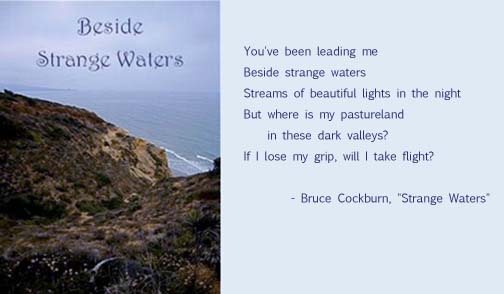This year, after prayer and reflection, I'm giving up 2 V's: vampires (i.e., supernatural thrillers and romances with any bloodsucking fiends, shapeshifters, or fey) and video games (well, actually, computer games). It will be an interesting Lent.
Why practice this weird annual ritual of random asceticism?
Gontran de Poncins, a "restless French aristocrat," left the comforts of civilzation and lived among Canada's Eskimos during the 1930s. As he reflected upon what he had given up, he discovered that less is truly more. Listen to how wonderfully he explains this:
God knows we were poor enough. Our poverty was total. We possessed nothing: not even the snow was our own. As a bird carries off a twig with which to make its nest, then leaves that borrowed twig once the season has passed, so we cut and trimmed our borrowed snow and left it to return to the common lot, passed it on as the Eskimos bequeath from generation to generation the stone traps in which they catch their river fish. But there was a cheer and a contentment in our existence which I continue to muse upon and cannot altogether explain to myself. Was it because infinite poverty lent infinite price to the least object? There was more to it than this. I had lost all I owned, but had found great riches. Like a religious, I possessed the veritable treasures, those which could not be taken from me. I had lost the world, but I had found myself, had exchanged the glitter for the gold. Within me had lain potentialities for moral serenity, and I had not known it. Storm and danger had been my salvation, and without them my spirit should have dropped heedlessly off to sleep in my flesh. There on that Arctic tundra I had reconstructed myself from within. Up through the lined and frozen layers of skin on my face, my true visage had begin to emerge, the visage that God had meant all men to show to one another; and that visage all the blizzards, all the adversity in the world could not decompose (Gontran De Poncins with Lewis Galantière. Kabloona. Chicago, IL: Time-Life, 1941, 1965, pp. 319-320).
When we deliberately give up that which distracts us, we find moral serenity and our truest selves. I don't know why we cannot be content when we have too much, but fasting somehow breaks that endless cycle of want and need, of "Mine!" and "Why aren't You listening to me?"

No comments:
Post a Comment